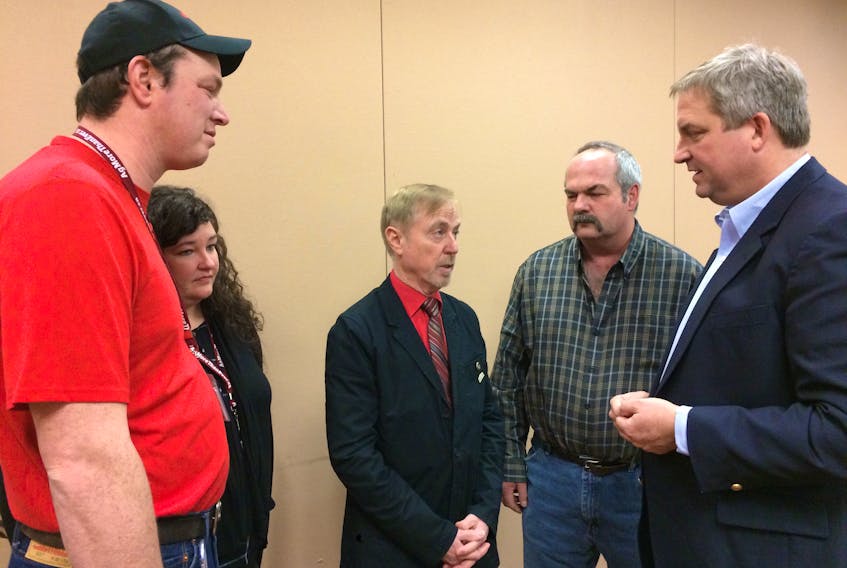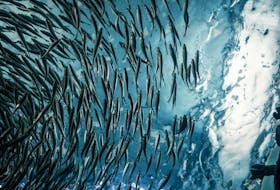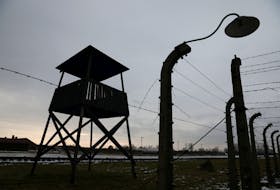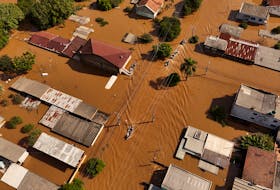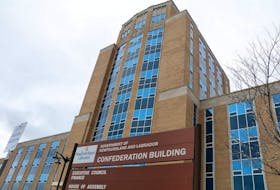GANDER, NL – After reviewing the provincial government’s plan to develop the agriculture sector, farmer Dwight Eveleigh is optimistic – but he does have some doubt.
The provincial government wants to double the province’s agricultural production within the next five years. Currently the province produces 10 per cent of its own food, with most of the remainder being shipped in.
Eveleigh, who owns a 120-acre farm in Comfort Cove, calls it a “very ambitious plan.”
“Land has to be applied for, cleared and put into production – it takes years,” Eveleigh said, “longer than the set timeline.”
One approach is bringing new entrants into the industry.
That’s something Eveleigh and his Lethbridge colleagues David and Krista Chatman agree with. But given the harsh work environment and risks tied to farming, they know it’s not an easy sell.
If the provincial government wishes to obtain its enhanced production goal, Krista feels focusing on established farmers is a good first step.
“The resources they would have to utilize (to double production) would be the current farmers and helping them increase their production capacity,” she said, adding it could branch out from there to bring in new entrants to further production capacity.
Fisheries and Land Resources Minister Gerry Byrne knows the provincial government has its work cut out but says government “has its shoulder to the wheel” on agriculture.
Byrne noted agriculture and aquaculture are the two main focuses of the cabinet committee on jobs.
He says based on industry feedback, government has been working on measures that will allow current farmers to expand and encourage new entrants.
He mentioned Newfoundland and Labrador having secured $37 million from the federally funded Canadian Agricultural Partnership. Known as CAP, the program is designed to assist farmers with managing significant risks that threaten the viability of their farm, as well as helping with management, market development and innovation.
There’s even funding available through this program to assist with land clearing, said Byrne.
Last year the province announced 64,000 hectares of agricultural land would be made available to farmers, which will begin this year.
The province has also readied partially developed lots to entice new entrants, which Byrne says is a critical component of the expansion plan.
“In a 10-year period – from 2005 to 2015 – we went from 500 farms in NL to 400. We lost 20 per cent of our overall farms,” he said. “We need to stop that trend and find a way to reverse it.
“To attract new farmers, we are accepting applications on this (partially developed) land for new entrants into the vegetable sector. These are the kinds of innovations we need – we have to do things differently to grow the industry.”
But there’s more to the industry than vegetables, and Byrne admits it’s something that requires more attention.
There’s no secondary processing when it comes to dairy such as ice cream, cheese or yogurt in the province.
“We have all these industrial milk quotas and basically ship it to the mainland to sell it – other than a couple of small artisan or boutique cheese factories and some creamers – so we are working with federal government on that,” he said.
Furthermore, there’s no federal inspection plant for red meat livestock. Byrne said the federal inspection is a requirement of chain grocery stores. Until that happens it’s a market that provincial farmers can’t utilize.

